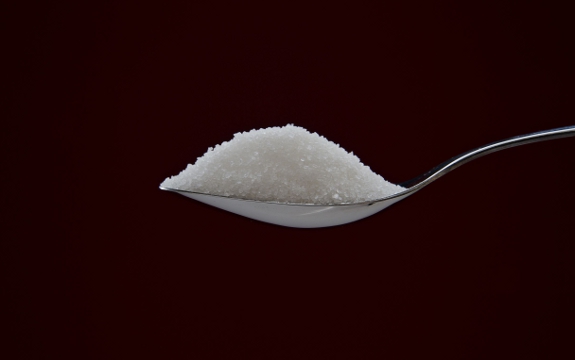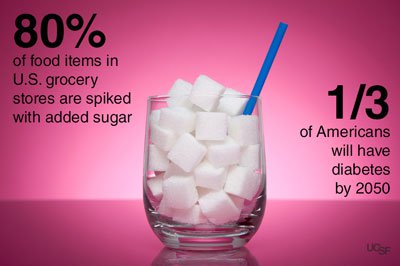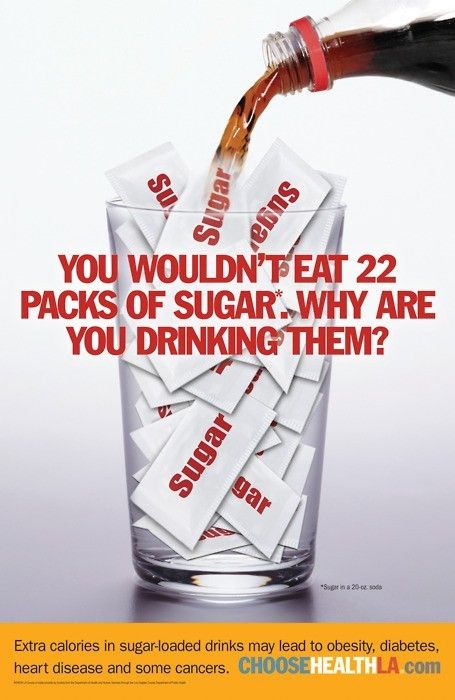Sugar is Carcinogenic?

It’s a no-brainer when it comes to avoiding sodas, juices with added sugars, pastries, candies, and processed foods that use processed grains and even add sugar or HFCS to foods that are not even sweet. That’s to keep you addicted even if you can’t taste it. Refined sugar is actually addictive, some claim it’s even as addictive as cocaine. Despite all the carcinogenic chemicals that blanket our biosphere, we do have one area that’s in our control – avoiding refined sugars and carbohydrates.
That’s right, team of UCSF scientists think that sugar is so toxic and so addictive that it should be regulated with taxes, restricted on to whom and where it can be advertised, and age-restricted sales. Right they are in their view on sugar and how it is highly addictive and toxic. Fructose has even been shown to be addictive as cocaine while fueling cancer and obesity rates.
But would regulating sugar really be the answer to the problem? While sugar consumption definitely needs to be lessened, creating laws against is not the answer. The government doesn’t need to create laws for every single issue we face. Certainly companies shouldn’t be allowed to blatantly lie and tout foods as being healthy when they contain 25g of sugar per serving, that is another issue that would be labeling as informed consent.
A Recent Study That Makes Sugar Carcinogenic
Now it’s even worse. There is a study that seems to be hidden from the public eye and is certainly not welcome within our orthodox oncology system. It would cramp the food and soda business’s profits if refined sugar is seen as carcinogenic.
The study, “Increased sugar uptake promotes oncogenesis via EPAC/RAP1 and O-GlcNAc pathways” was published in the 2013-2014 Journal of Clinical Investigation (JCI). Because it is a free access journal, you can access the full text, not just the abstract, here.
Its a wonder how this study hasn’t made much of a stir in our sick-care system since it is so accessible. Instead it was dug up by a research scout for Green Med Info. It is of course full of biochemical details, which is what medical people are supposed to be familiar with. So for now, let’s be content with a layman’s summary report of their study, which was an in vitro (cultures, petri dishes, and test tubes) study as opposed to an in vivo (animal or human) study. This way they could really play around with and analyze the results with total control.

Here’s the bottom line of this study: Increased glucose uptake leads to early phases of cancer cell creation while curbing glucose intake reversed cancerous cells into normal cells. In other words, sugar is carcinogenic as well as fodder for already existing cancer cells.
It’s important to not confuse the enormous amount of refined sugar, table sugar or HFCS, one takes in with sodas and processed foods with naturally occurring sugars and fructose in plant foods, regardless of how high the glycemic index may be. Fruit juices don’t need added sugars, but many fruit juices have sugar added. That’s the type of beverage or food that needs to be avoided.

But table sugar is refined, and most off the shelf breads and pastries are composed of refined grains that are refined carbohydrates, which become sugar instantly without any compensating nutrition. They are processed out of whole foods to be independent of other compounds that balance natural whole foods to make them beneficial.
On average, Americans consume 475 calories worth of added sugars each day. That is about 30 teaspoons, or 5x more than even the American Heart Association recommends. The recommended amount of sugar to consume on a daily basis is only 25g, but look at what we have to currently battle:
- An average bottle of Coke contains over 60g of sugar.
- A Red Bull contains up to 27g of sugar.
- Supposedly healthy Vitamin Water contains up to 13g of sugar.
- An 8oz Snapple contains up to 23g of sugar.
- A single Pop Tart contains 17g of sugar.
- A Cinnabon Cinnamon Roll has up to 55g.
- Most kids cereals, like Capn Crunch, Frosted Flakes and Trix contain anywhere from 10-12g of sugar per serving.
- A 16oz Starbucks Mocha Grande Frappuccino contains over 40g of sugar.
While that is discouraging, all of the listed items are actually only a part of a ‘bad’ diet, and are completely avoidable. The change in a drastic reduction in sugar consumption will not happen over night, but with the proper education and dismissal of false advertising, changes will occur in time.
Read more: https://naturalsociety.com/scientists-declare-health-crisis-over-carcinogenic-sugars/#ixzz5PbuYpTFP
Follow us: @naturalsociety on Twitter | NaturalSociety on Facebook
An interesting informative excerpt from the Cancer Tutor:
Dr. Tony [Antonio] Jimenez hypothesizes that sugar from Organic Produce may not contribute to cancer cell growth like its adulterated counterpart [refined sugar/HFCS]. He explains that human mammalian cells absorb levorotatory (left spinning) molecules, while cancer cells can only assimilate dextrorotatory (right spinning) molecules.
Essentially, fruits in their natural state contain left spinning sugars, whereas GMO-influenced fruits consist only of right spinning sugars. Dr. Jimenez concludes that the glycemic index is not nearly as important as the source and lineage of the fruits and vegetables we eat. As an example, Dr. Max Gerson used Carrot Juice as a successful alternative therapy, despite its high glycemic index.
Resources can be found at https://realfarmacy.com/refined-sugars-create-cancer-sources-references/
https://naturalsociety.com/scientists-declare-health-crisis-over-carcinogenic-sugars/





